How I got a publisher - An interview with author, Paul Edwards
firstwriter.com – Tuesday April 27, 2010

Paul Edwards recently secured a publishing deal through a literary agent he found in firstwriter.com's database of over 800 literary agents. We asked him about his writing, and how he found success.
fw: Thanks for taking the time to talk to us, Paul, and congratulations on having secured an agent and a publishing deal. Tell us a little about your book.
PE: My book is called How to Rap: The Art & Science of the Hip-Hop MC. It’s a nonfiction book and I interviewed 104 rappers for it, so that the reader can learn how to rap in the words of the professionals. The acts I interviewed include The Black Eyed Peas, Nelly, Cypress Hill, and Public Enemy.
fw: What made you want to write a book about rapping?
PE: I have always loved music and I was surprised there wasn’t a book on rapping. You can buy books on how to play blues guitar, or opera singing, or jazz piano, but there wasn’t a guide to rapping. Seeing as I love rap, I decided I’d take a couple of years and put together something that would help people understand the craft of it better.
fw: What approach did you take to writing it?
PE: I wrote it more from a researcher’s angle rather than including a lot of my own words, so I collected the information from the rappers, structured it, and presented it in a clear way for the reader. The book is mainly direct quotes from the rappers, so as a researcher I mostly got out of their way and let them do the talking as they’re the real experts.
I was doing academic research on rapping for a few years at university – it then took about 2 years to interview all the rappers and another year to put the finished book together. So I think around 4–5 years in total.
A tip I’d give, just from my own experience, is to write the whole bulk of it first, and then go through and improve every aspect of it and take out the bits that don’t measure up. I think it’s far easier to improve on something you already have than to try to make it perfect the first time you write it. Having a rough version of the whole thing gives you a better perspective on the bigger picture of the book and what needs changing and how.
fw: Had you done any writing previously?
PE: I’d been researching rap music for several years beforehand, at university and for a Master’s Degree from University of London. So I had done academic writing previously, but hadn’t published anything. I had to kind of unlearn the academic style and learn a clearer nonfiction style to write this book, so it took a while to get used to writing like that.
fw: Do you think it's important to have been published before when pitching your work to agents?
PE: I think if you have an idea that an agent and a publisher thinks will sell reasonably well, and you’ve demonstrated that you’re competent enough to write it, then it doesn’t matter if you’ve been previously published or not.
If you’re trying to do something that is an area that isn’t really proven, or you have an idea that sounds like it could be a real gamble, then it probably helps to have published something before.
I think new authors are probably in a better position than authors who have taken a big advance, brought a book out, and sold very few copies. Publishers will look at the figures for that book, see that it made a loss and won’t want to take the next book on.
However, it all comes down to whether it’s an idea that they think will do well… if you have that, then they will still take on the book.
fw: After you'd written the book, what was the first thing you did to try and get published?
PE: I bought a few books on getting published, so I knew I wanted to get an agent, so that’s the first thing I tried.
fw: And did you look for agents in printed books as well?
PE: I did try using the listings of agents in books, but that took a long time to search through and to write everything out, so when I found firstwriter.com it seemed so much more practical and specific.
fw: What did you particularly like about it?
PE: The way you can search through the database makes everything so much easier and thorough. When I found my agent, I searched for just US agents who accepted queries via email… which would have taken ages searching any other way. firstwriter.com makes it very simple to query a lot of agents, targeting the ones who are most likely to take on your work.
fw: How did you decide on the format for your query?
PE: I had a couple of books on writing proposals and queries, and I had seen a few examples online.
My query was pretty short and I made it as punchy and as tight as possible – the main idea was clear and came first and I had a few bullet points listing the key features. I also stressed the size of the audience… it definitely helps to do some research into the market and include some numbers.
The thing agents and publishers are thinking when they read your query is, “will this sell any copies?” The more things you can say to them to make them feel like they’re not taking a gamble, the better. When picking “similar books/competing titles” to list in the query or proposal, pick books which have sold well, because if you pick a bunch of similar books to yours and they haven’t sold anything, then you’ve just proved to the agent or publisher that no one buys that sort of book.
This doesn’t mean you should compromise your writing or your idea or try to commercialise what you’re doing, but you should take what you have and present it in the best possible light, sales-wise. The less research and work the publisher or agent has to do the better – give them firm figures and evidence that your book will sell.
I sent out my queries in two big sending-out periods. It was the second lot that worked, where I was sending out just email queries and they were all the same.
I got replies from six agents asking to see the proposal and sample chapters based on the query, so I sent those out, and about two months later one of the agents asked if I would sign a contract and that was that!
fw: What was the difference between the two batches you sent out?
PE: The first time I sent out a proposal and I was sending out to agents listed in books. I was in England at the time, so I sent out to just UK agents that were listed in the books I had (this was a silly move, as there is a bigger audience for the book in the US!). I think I sent out to over fifty agents and those all came back as rejections.
I then rewrote the proposal and also put together an early draft of the book, so that I’d have sample chapters to show. I then sent out a second batch, in the form of queries to US agents via email… I think I sent out to about fifty again. And that’s when I got my agent, based on that second batch.
fw: How did you deal with all the rejections?
PE: The whole process from getting an agent, to getting a publisher, and when I was interviewing for the book was full of rejections. To get one “yes” you have to deal with wall-to-wall rejections for a long time.
I’ve read quite a few biographies of successful people and it seems a common theme that you have to go through many, many rejections before anything starts happening. I expected a lot of rejections so they didn’t really throw me off course when they came, I knew to just keep trying and keep improving the book.
fw: What do you think made your agent sign your book?
PE: She saw the potential in the idea and the way it was done, and when she called publishers they were interested in taking a look, so she decided to take it on. We’re a good match because she believes in my work and I trust her to find my books good homes and to sort out the contracts.
fw: And how did things change once you'd got an agent?
PE: It’s cool having an agent, though I think the novelty wears off pretty quickly! I think your mind just accepts it, that becomes your new day to day reality, and you get to work on the next step.
I think writers may expect more contact with their agent than you actually get… basically if not a lot is happening, they won’t contact you, and when something IS happening then it happens pretty fast, over just a handful of emails in my experience.
My agent is in New York and she goes to meetings, but there is no reason for me to personally meet up with her and it would be a big travel expense, when it can all be so easily sorted out over email or phone. Maybe authors regularly selling millions meet with their agent in person a lot, or if you live close by, but I don’t think many other authors see their agent much either, as far as I know.
Right now, my agent is trying to get me to write a second book!
fw: After you secured your agent, how long did it take to find a publisher? What was the process?
PE: It took a while to get a publisher, though a lot of the time was taken up with the publishing industry moving very slowly in general. Your agent can send something off and you won’t hear back for two or three months. The process is pretty simple though, you email your agent with the proposal and sample chapters, then you sit back and wait to see if there is any feedback or if they’ll take on your book.
fw: Which publisher accepted your work? Do you think there was any particular reason they did, and do you think they would have done if you hadn't had an agent?
PE: Chicago Review Press – again I think they liked the idea and they liked the way it was executed. They have an imprint that focuses on music and another imprint that focuses on African-American culture, so my book fit well with their catalogue.
I don’t think they would have taken it on without my agent, because she has placed books with them for another one of her authors, so she already had a good working relationship with them. They were more willing to give my book a look because of that.
fw: After your book was accepted, how did you find the publishing process?
 PE: The book is out now and I went through the whole editorial process a while back. I think I was lucky because my project editor was very, very thorough and logical and we agreed on all the changes – his suggestions made the book a lot better. There are a few editors who worked on the book – my acquiring editor, who basically read the book when I handed it in and gave it a general OK, she handed it to my project editor who did the most work on it and suggested changes, and also there was a copy editor who focused solely on fixing grammar, spelling, etc. There was also an indexer who compiled the index.
PE: The book is out now and I went through the whole editorial process a while back. I think I was lucky because my project editor was very, very thorough and logical and we agreed on all the changes – his suggestions made the book a lot better. There are a few editors who worked on the book – my acquiring editor, who basically read the book when I handed it in and gave it a general OK, she handed it to my project editor who did the most work on it and suggested changes, and also there was a copy editor who focused solely on fixing grammar, spelling, etc. There was also an indexer who compiled the index.
My project editor also checked a lot of the factual things in the book, just to make sure I had gotten track names and everything correct.
fw: When was the book released?
PE: The book was released in December 2009. The distributor is IPG, who I’ve read are the third biggest distributor in the U.S., so it’s in all the major bookstores in America. It’s also on amazon and elsewhere on the internet. They do have distribution elsewhere in the world, though I’m not sure how comprehensive that is.
fw: Now that the book is out do you find that your role has changed?
PE: Yes, you totally have to become a publicist once the book is out, I haven’t really had any time to do any other writing! I’ve done quite a lot of magazine, radio, and internet interviews and spent a lot of time just getting the book out there to as many people as I can.
I didn’t do events or book signings, because I’ve been told unless you’re famous already, it’s hard to get a lot of people to come to them, and for the time and money spent in organising things like that, you don’t get the numbers to justify it.
For example, if I go to a bookstore in another town for a signing, I might spend money on travel and accommodation and maybe 100-200 people will turn up or see the book in some way. Compare that to some of the big music websites I’ve gotten the book on which reach the audience directly—some of those websites have hundreds of thousands of visitors per day and it doesn’t cost anything to get publicity there.
fw: Do you have any tips for other writers trying to get published?
PE: I’d say stick to what you love and know and keep improving it, figuring out what you can do to make it a better book. It’s also better to put all your time and energy into one idea than it is to spread yourself thin over a number of ideas. Don’t give up on a project because of the rejections, if you believe in it, keep going.
fw: Where are you taking your writing now?
PE: I’ve got another Hip-Hop related book in the works – I’ll be looking to get a publisher for that in the next year or so, and I’ve got a lot more publicity to do for this book!
My book can be purchased in bookstores in the US and also at amazon.com – amazon.com (click here)
fw: Thanks for taking the time to talk to us, Paul, and best of luck with your book!
To search firstwriter.com's database of over 800 literary agents click here. To search the database of over 1,300 publishers click here




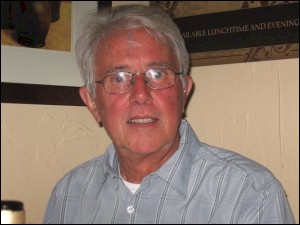 How I got a publisher - An interview with author, Paul Mercer
How I got a publisher - An interview with author, Paul Mercer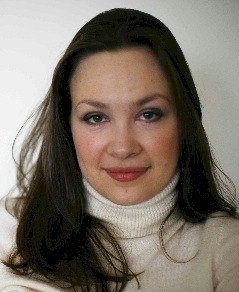 How I got a publisher - An interview with author, Lorna Elliott
How I got a publisher - An interview with author, Lorna Elliott How I got a publisher - An interview with author, Lynette Mather
How I got a publisher - An interview with author, Lynette Mather How I found a publisher - An interview with author, Jack Walker
How I found a publisher - An interview with author, Jack Walker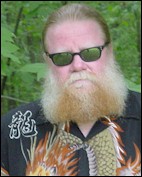 How I got a literary agent - An interview with author James R. Larson
How I got a literary agent - An interview with author James R. Larson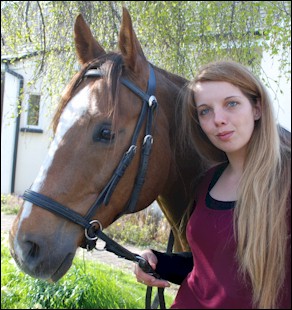 How I got a publishing deal - An interview with author, Rachel North
How I got a publishing deal - An interview with author, Rachel North How I got a literary agent - An interview with author, Charles Heaton Allen
How I got a literary agent - An interview with author, Charles Heaton Allen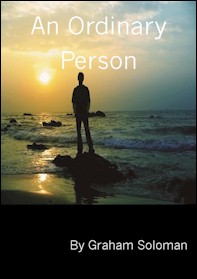 How I got a literary agent - An interview with author, Graham Soloman
How I got a literary agent - An interview with author, Graham Soloman How I got my book published - An interview with author, Marion Grace Woolley
How I got my book published - An interview with author, Marion Grace Woolley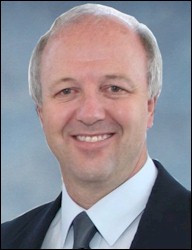 How I got published - An interview with author, Kent Richardson
How I got published - An interview with author, Kent Richardson How I got a literary agent - An interview with author, Robert W. Morgan
How I got a literary agent - An interview with author, Robert W. Morgan How I got a literary agent - An interview with author Rob Riley
How I got a literary agent - An interview with author Rob Riley How I got a literary agent - An interview with author Geri Spieler
How I got a literary agent - An interview with author Geri Spieler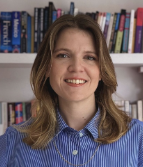 New Literary Agent Listing: Gabrielle Demblon
New Literary Agent Listing: Gabrielle Demblon Reading Force is delighted to welcome submissions from adults, children and young people to its 2025 Memoir Writing Competition
Reading Force is delighted to welcome submissions from adults, children and young people to its 2025 Memoir Writing Competition New Publisher Listing: Cicada
New Publisher Listing: Cicada Calling all aspiring authors! Here's your chance to win a one-to-one session with a literary agent - plus £1,500
Calling all aspiring authors! Here's your chance to win a one-to-one session with a literary agent - plus £1,500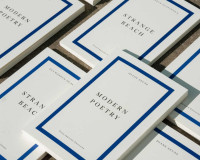 New prize for translated poetry aims to tap into boom for international-language writing
New prize for translated poetry aims to tap into boom for international-language writing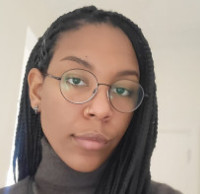 New Literary Agent Listing: Kaylyn Aldridge
New Literary Agent Listing: Kaylyn Aldridge TikTok parent ByteDance is shutting down its short-lived book publisher
TikTok parent ByteDance is shutting down its short-lived book publisher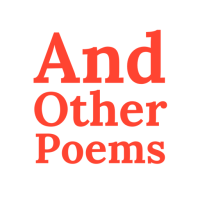 New Magazine Listing: And Other Poems
New Magazine Listing: And Other Poems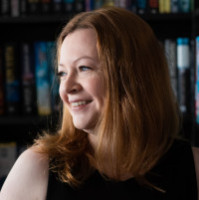 New Literary Agent Listing: Helen Lane
New Literary Agent Listing: Helen Lane UK audiobook revenue up by almost a third last year
UK audiobook revenue up by almost a third last year New Publisher Listing: Radio Society of Great Britain
New Publisher Listing: Radio Society of Great Britain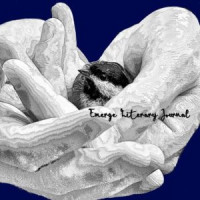 New Magazine Listing: Emerge Literary Journal
New Magazine Listing: Emerge Literary Journal New Literary Agency Listing: Ghosh Literary
New Literary Agency Listing: Ghosh Literary New Publisher Listing: Hardie Grant
New Publisher Listing: Hardie Grant
